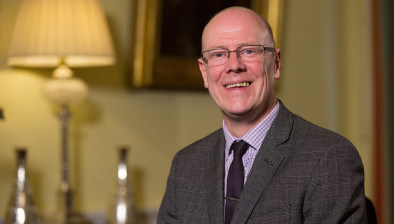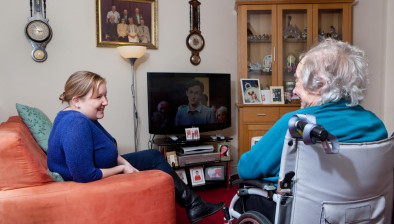Glasgow City Council staff back strike action in equal pay dispute
Council workers at Glasgow Health and Social Care Partnership (HSCP) are among those to have voted to back strike action in a dispute over equal pay.

The GMB union said its members held a ballot yesterday to support strikes against the employer’s “failure to resolve outstanding equal pay settlements” and replace its “discriminatory” pay and grading system.
Around 98% of ballots returned from GMB members in services including Glasgow HSCP, school cleaning and catering, and parking services, passed the statutory legal threshold for industrial action ballots in public services.
The union said the result could mean a fresh wave of equal pay strikes affecting these services from as early as the end of March, with disruption also possible in the run-up to the local authority elections at the beginning of May.
GMB Scotland organiser Sean Baillie said: “Our members need equal pay justice and an end to the discriminatory pay and grading system that remains in place.
“That’s the clear message this ballot result sends to the council officials who should be negotiating properly with our claimant groups and to every councillor seeking election in May.
“The council’s liabilities are growing every working hour of every working day and the cost will likely run into the hundreds of million yet again, so the situation is critical for our members, the services they deliver, and the city’s finances.
“That’s why we need an urgent negotiation process to be conducted in good faith between the council and the claimant groups, if strike action is to be avoided.”
A Glasgow City Council spokesman said: “We’ll await the details from the union, however it remains disappointing that they balloted members when we have been clear we are ready to make offers on new claims.
“It was agreed with unions that new claims should be settled before we discuss the period after 2018.
“And delays to the implementation of a new pay and grading structure, caused by the pandemic, were also agreed – unions specifically didn’t want members taking part in evaluation interviews during that period.”









